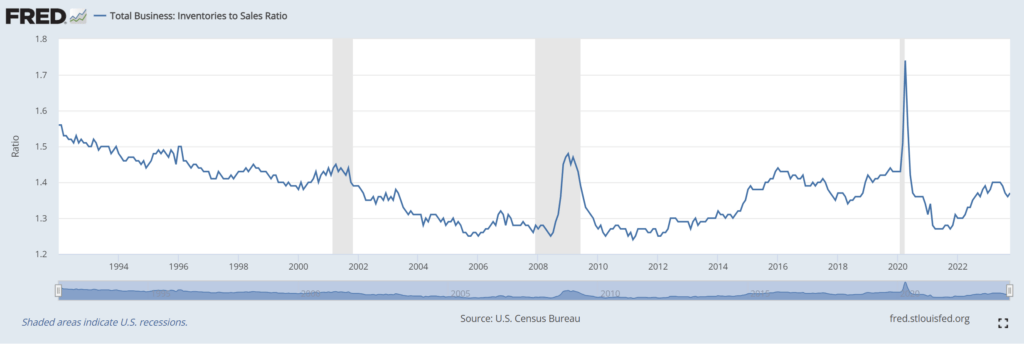Few people think of Lean management in the bigger context of the macroeconomy. Meaning, what Lean management can do to help avoid painful recessions that throw people out of work, destroy wealth, and erode consumer and business confidence. That’s unfortunate, because if they did they would see Lean management as far more than just process improvement or respecting people.
The two slides below are from my 2010 Lean leadership training workshop (Module 4 of 4). In addition to all the other benefits of Lean for a company and its stakeholders, companies that can successfully transition from classical management to Lean management do a great service for the economy and the country. Lean management, done right, will reduce the frequency and severity of recessions.
As you can see from the image below, the inventories exceed sales by an average of about 35 percent throughout the 2000s. That is clear evidence of overproduction (usually, to absorb costs) and over-reliance on forecasting (i.e., guessing what the sales volume and mix will be).
The key to improving the economy is much closer synchronization of supply with actual demand — real Just-in-Time, not the Fake JIT produced by the recent proliferation of warehouses.

There is more to Lean management than you realize.
